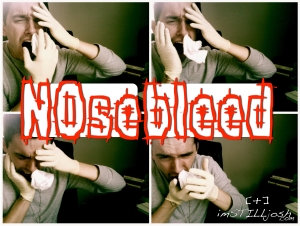The U.S. Travel Ban Against Sex Workers and
Drug Users and its Consequences on the AIDS 2012 Conference
By: Lily Alexander, HIV Stigma Intern for ICRW
How effective can a conference truly be that doesn’t
include the opinions of those most affected? How much productive dialogue can
be created when the voices so key to this issue are missing? These are some of
the key questions that surround the upcoming International AIDS Conference
(IAC) in light of the U.S.
travel ban against sex workers and drug users, two populations most heavily
affected by the epidemic.
25,000
delegates from over 200 countries are projected to be attending the 2012 IAC
that will take place in Washington,
D.C. from July 22 through 27. Yet
due to the U.S.
travel ban against sex workers and drug users, those present at the conference
will not be representative of the populations most heavily affected by the
epidemic.
The U.S. was chosen as the location for the 2012 IAC due to the recent repeal of the U.S. ban against people living with HIV entering this country, which had prevented an international AIDS conference from being held in the U.S. since 1992. Although Obama’s 2010 repeal of the U.S. ban was an important milestone in reducing HIV stigma, U.S. travel restrictions continue to perpetuate the stigma.
Current U.S. law prohibits the entry of those people that have participated in sex work in the past 10 years, or those considered drug “addicts” or “abusers.” The two related questions on the visa application include:
1. Are you or have you ever been a drug abuser or drug addict?
2. Are you coming to the United States to engage in prostitution or unlawful commercialized vice or have you been engaged in prostitution or procuring prostitutes within the past 10 years?
These extremely vague and ambiguous definitions of drug users and sex workers mean that an enormous spectrum of people are considered ineligible for entering this country and participating in what could be one of the most important conferences of the decade. No criminal charge is necessary to be implicated as “engaging in prostitution,” but rather, prostitution is defined as “moral turpitude.” This restriction applies even to sex workers in countries where prostitution is legal.
Although sex workers and drug users can apply for a waiver if their visa application is denied, this process is extremely time-intensive and costly -- $140 for the initial visa application plus $545 for the waiver. In addition, even if this waiver is accepted, this waiver guarantees only a one-time entry for the individual and means that one’s record is permanently marked as being a drug user or sex worker, which not only exacerbates stigma but may prevent entry into the U.S. on other occasions in the future. This waiver code stamped in passports will essentially be a scarlet letter that screams criminal for the rest of these peoples’ lives.
In response to the exclusivity of the AIDS 2012 conference, two off-site conference hubs have been declared in Calcutta and the Ukraine so that sex workers and drug users can participate in the debate. The Sex Worker Freedom Festival -- the alternative conference being held in Calcutta -- was organized to “protest our exclusion and ensure the voices of those excluded are heard in Washington.” This conference is free for sex workers.
Yet for some, such as Allan Clear, executive director of the Harm Reduction Coalition, these conferences are an unacceptable alternative. “What you’re asking for is that drug users [and sex workers] press their noses against the window of a country and conference that they can’t get into and where their lives and issues are not represented. A hub is not a viable alternative. It is just not an acceptable alternative. We just cannot sign off on something that is supposed to smooth the issue over and make people feel better.”
The AIDS 2010 Conference in Vienna sparked great hope of ending the stigma of those key populations living with HIV. The Vienna Declaration -- the policy statement issued at the conference -- pledged to end the criminalization of drug users and include a large presence of both drug users and sex workers at the 2012 conference. The International AIDS Society was one of four organizations who authored the Vienna Declaration. It is contradictory that two years later they have chosen a location for the 2012 AIDS conference that further criminalizes and ostracizes the very same populations they had so boldly defended in the declaration.
Let’s renew this hope that was present after the 2010 conference and lift the travel ban against sex workers and drug users, two populations that have been disproportionately affected by the epidemic. With the conference a little over a month away, we must act swiftly to pressure the U.S. government to do so. The U.S. funds and directs many HIV programs throughout the world, and it is imperative that our policies align with the goal of reducing stigma of these marginalized populations.
Obama’s lifting of the ban against people living with HIV coming into this country was pivotal in the fight to end the epidemic. But it’s not enough. In Housing Works’ Executive Director Larry Bryant’s speech at the end of the 2010 Vienna conference, he said, “Ending the travel ban was supposed to be a major step in destroying the stigma engulfing individuals around the world infected and affected by HIV and AIDS. All we have done is shifted it to other marginalized and criminalized communities: sex workers, drug users and ex-offenders.”
Let’s follow on the coattails of this momentum and repeal the travel ban against sex workers and drug users. They deserve the same rights and respect as anyone else.





